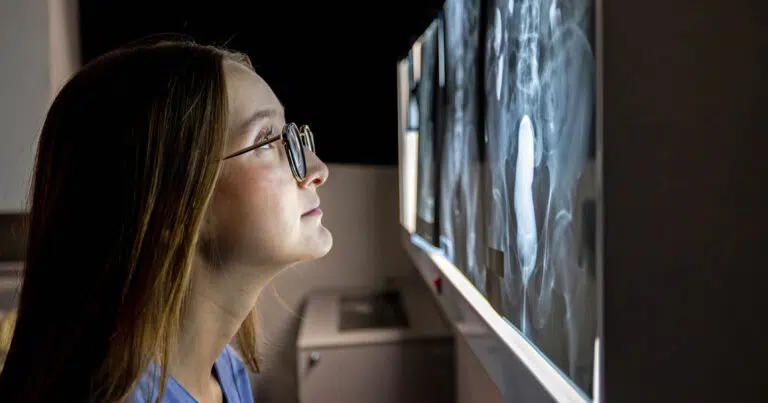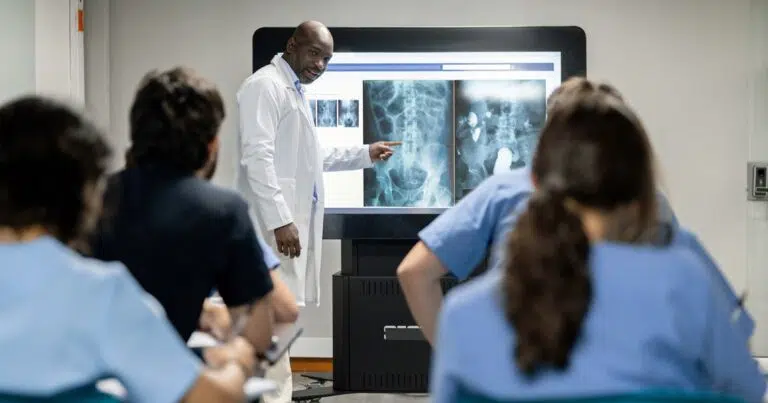IR Tech Career Guide
Looking for a different career guide?
Overview
An Interventional Radiology Technologist (IR Tech) is a vital member of the healthcare team who specializes in using advanced imaging equipment to assist physicians in performing minimally invasive, image-guided procedures. These procedures can range from angiograms to complex interventions, often eliminating the need for traditional surgery. Interventional radiology technologists play a crucial role in patient care by ensuring
Education
To become an Interventional Radiology Technologist, individuals typically need to complete an accredited radiologic technology program, usually resulting in an Associate Degree. Some technologists may pursue a Bachelor's Degree to enhance their qualifications and career prospects. Programs include coursework in anatomy, physiology, medical imaging and interventional procedures.
Skills
This specialty demands a combination of technical skills, including operating imaging equipment, positioning patients accurately and assisting with procedures. Communication skills are vital for explaining procedures to patients, providing support and collaborating with the medical team. Strong critical thinking and problem-solving abilities are essential for adapting to complex cases.
Responsibilities
IR Techs are responsible for ensuring the patient's safety and comfort, operating imaging equipment, assisting with procedures, monitoring patients' vital signs and providing post-procedure care. They collaborate with radiologists, nurses and other healthcare professionals to ensure smooth procedures and patient recovery.
Salary Insights
The average salary for a IR Tech is $2,921.32 per week.
Last updated on December 19, 2025. Based on active jobs on Vivian.com.
Pros & Cons
Becoming an Interventional Radiology Technologist offers numerous advantages. It is a rapidly evolving field that combines technology and patient care, providing the opportunity to make a significant impact on patients' lives. Job demand is expected to grow as minimally invasive procedures become more popular. The role also allows for specialization and continuous learning.
However, there are challenges to consider. Interventional Radiology
Some of the content on this page was enhanced using artificial intelligence.
Join over 1 million healthcare workers that are getting a head start with Vivian.
Join Vivian






